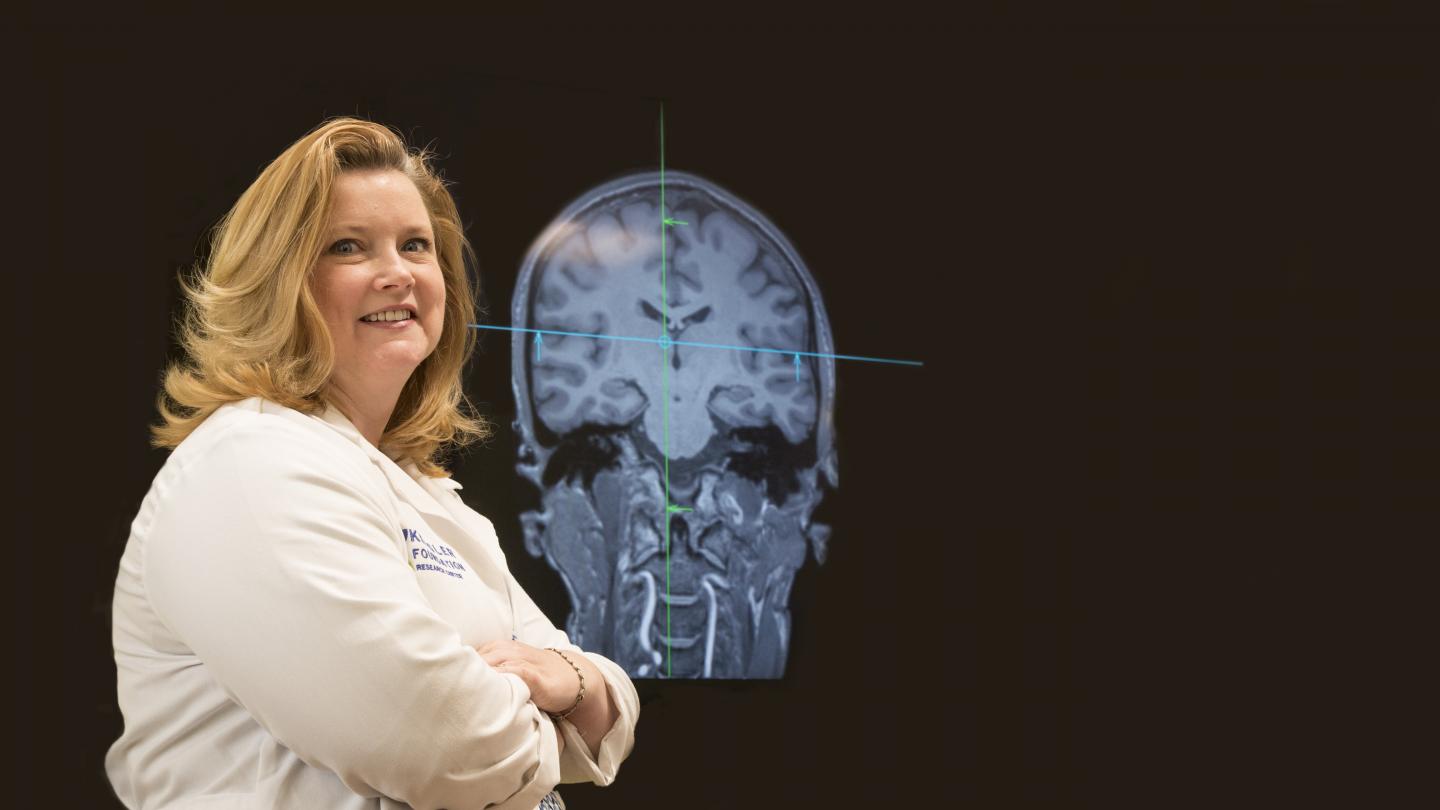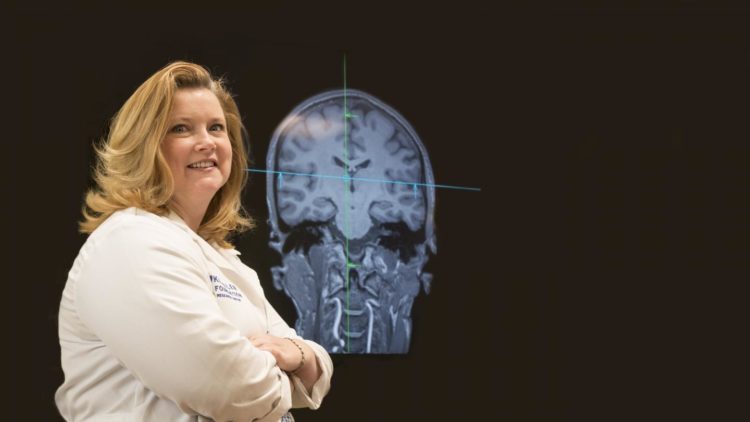TBI research team finds associations between default mode network connectivity and emotion recognition and social integration

Credit: Kessler Foundation/Jody Banks
East Hanover, NJ. November 6, 2019. A recent study of individuals with moderate to severe brain injury yielded new information linking brain connectivity patterns and deficits of emotion recognition and social functioning. The article, “Default mode network connectivity predicts emotion recognition and social integration after traumatic brain injury”, (doi: 10.3389/fneur.2019.00825 ) was epublished on August 9, 2019 by Frontiers in Neurology.
This article is open access: https:/
A common consequence of moderate to severe traumatic brain injury (TBI) is a deficit in the ability to recognize the emotions of others. This, in turn, interferes with the ability to function effectively in social settings including school, work, and the community. Brain imaging studies have shown that emotion recognition ability may be linked to connectivity (i.e., coordinated activity) between regions in a functional network known as the default mode network. However, little research has been done on the relationship between resting-state functional connectivity and emotion recognition in individuals with or without TBI. This study is the first to explore these relationships and examine their potential value as predictors of social outcomes after TBI.
The researchers conducted tests of emotion recognition in two groups, 21 individuals with TBI and 27 healthy controls, and correlated their performance with resting-state functional connectivity between regions of the default mode network. They found that for all participants, deficits in emotion recognition were linked to increased connectivity between prefrontal and temporal regions of the network. In the group with TBI, the strength of prefrontal-temporal connectivity predicted participants’ level of social integration using the Community Integration Questionnaire, an important measure of social functioning post-TBI.
“This study advances our understanding of the brain basis of post-TBI deficits in social functioning,” said Dr. Lancaster, the Hearst Postdoctoral Fellow in the Center for Traumatic Brain Injury Research at Kessler Foundation. “In particular, we found that default mode network connectivity was a stronger predictor of social outcomes than emotion recognition alone,” she noted, “underscoring the importance of brain connectivity metrics in explaining social aspects of TBI recovery.”
Further research is needed to confirm the reliability and validity of increased connectivity as a neuromarker for post-TBI social functioning. Neuromarkers will help clinicians identify individuals at risk for poor outcomes after TBI, and encourage the development of new rehabilitative interventions aimed at improving social integration and quality of life.
###
This research was supported by the New Jersey Commission on Brain Injury Research (CBIR13IRG026), and the Hearst Foundation.
About Kessler Foundation
Kessler Foundation, a major nonprofit organization in the field of disability, is a global leader in rehabilitation research that seeks to improve cognition, mobility and long-term outcomes, including employment, for people with neurological disabilities caused by diseases and injuries of the brain and spinal cord. Kessler Foundation leads the nation in funding innovative programs that expand opportunities for employment for people with disabilities. For more information, visit KesslerFoundation.org.
For more information, or to interview an expert, contact:
Carolann Murphy, 973.324.8382, [email protected].
Rob Gerth, 973.323.3675 [email protected]
Media Contact
Carolann Murphy
[email protected]
973-324-8382
Related Journal Article
http://dx.





